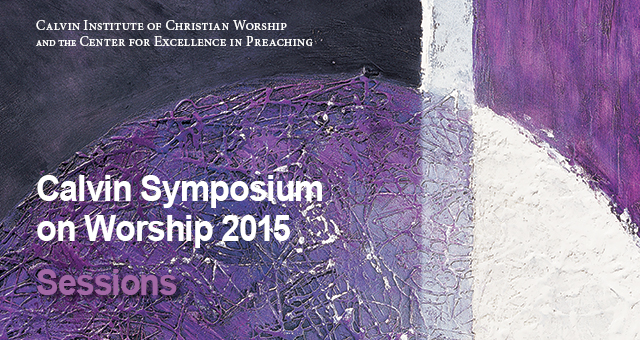
Session Description
Public worship and reconciliation are deeply connected. In worship, we announce the good news of reconciliation in Christ in sermons and songs. But we don’t speak or sing about it. In worship, we also practice habits that are fundamental building blocks of reconciliation: we confess sin, pass the peace to each other, and gather in unity around Christ’s table. At its best, public worship both announces and participates in Christ-shaped reconciliation. Yet this is not easy, especially when congregations are marked by divisions and conflict. What about churches that sing about reconciliation and unity, but seem unwilling or unable to address conflict in healthy ways? What about divisions that keep us separated across ethnic and socio-economic lines? What about centuries-old conflict that seems so much bigger than any congregation can really address?
Conference Title
2015 Calvin Symposium on Worship
Event Date
1-30-2015
Event Type
Workshop/Seminar
Type (recording/text)
Text
Subject Area
Worship
Topic
Contemporary Worship
Keywords:
Reconciliation, Division, Conflict
Upload Date
January 2015
Recommended Citation
Bailey, David M.; Jammal-Hollemans, Shannon; Ntarangwi, Mwenda; Smith, Kathy; Van Opstal, Sandra Maria; Wolterstorff, Nicholas; and Rylaarsdam, David, "Until Justice and Peace Embrace: Worship that Announces and Shapes Reconciliation" (2015). Symposium on Worship Archive. 38.
https://digitalcommons.calvin.edu/uni-cicw-symposium/2015/sessions/38
Included in
Until Justice and Peace Embrace: Worship that Announces and Shapes Reconciliation
Public worship and reconciliation are deeply connected. In worship, we announce the good news of reconciliation in Christ in sermons and songs. But we don’t speak or sing about it. In worship, we also practice habits that are fundamental building blocks of reconciliation: we confess sin, pass the peace to each other, and gather in unity around Christ’s table. At its best, public worship both announces and participates in Christ-shaped reconciliation. Yet this is not easy, especially when congregations are marked by divisions and conflict. What about churches that sing about reconciliation and unity, but seem unwilling or unable to address conflict in healthy ways? What about divisions that keep us separated across ethnic and socio-economic lines? What about centuries-old conflict that seems so much bigger than any congregation can really address?


